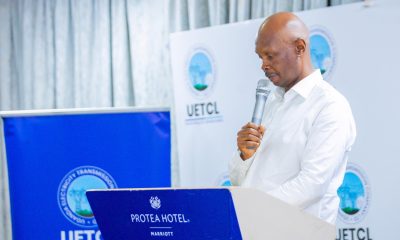Analysis
New Electric Vehicles explain Uganda’s failure to industrialise
The launch of East Africa’s Second Electric auto mobile in Kampala this week by a Chinese company will likely attract praise from Ugandans about the ingenuity of the Chinese people in technology. It is also about how the Asian country is overtaking Western countries in industrial development.
But in a society that chose the path of science fifty years ago to power its economic transformation, it is little surprising to see they have been able produce the kinds of things like electric cars, aircraft, solar appliances, and the like, that are leaving many Africans mesmerised.
The questions is: What is wrong with us as Ugandans? This refers to the story behind the latest Chinese Unveiling of the Flying Electric Vehicles in Uganda;
Then, why are we so opposed to change and innovations by our own brothers and sisters, despite their proven capacity or at least burning desires to create new products that could not only improve our lives but also improve our balance of trade through exports of more manufactured goods that attract higher foreign exchange. Musa Body, is an immediate example that comes to mind.
Over the past ten years, Ugandan politicians have been mired in an endless and frankly unreasonable debate over whether the country can embrace the new tools of genetic modification in the agricultural sector to counter the many challenges of food security and poverty.
President Museveni’s government has listened to opponents of modern agricultural science to suppress scientific evidence which has cost millions of people a chance to prosper and the whole economy an opportunity to transform. As the Woman MP for Lira district Atim Joyce Ongom observed this week, the ongoing drought has destroyed our economy.
President Museveni’s recent admission to divert money meant for roads to buy food for starving people in Eastern Uganda is just another piece of evidence of the cost of failure to make the right decisions to adopt and promote drought-tolerant varieties.
The government’s willingness to listen to opponents of biotechnology has ignored the fact that Ugandans have been consuming GMOs in medicines and vaccines almost for 30 years. And there is evidence of safe consumption of natural GMOs in yoghurt and sweet potatoes.
Scientists have further revealed that all vaccines are products of Genetic modification and majority of Ugandans owe their existence to the wonders of vaccines that helped tackle the killer diseases such as measles, whopping cough, polio and hepatitis B.
Evidence also shows that scientists have been able to develop drugs (ARVs) that cause changes in our bodies to be able to fight the deadly HIV virus.
At the start of this month, the government revealed that all Ugandans (estimated at 1.5M) who will be diagnosed with HIV, will have the opportunity to access free ARVs. And no one has come out to oppose this process of putting so many people on drugs that have been produced using the science of Genetic Modification.
As Deborah Wendiro, a biochemist at the Uganda Industrial Research Institute (UIRI) remarked, the government’s narrow focus on Biotechnology at an agricultural tool, has locked out many other scientists in the pharmaceuticals and other industries that already have great export potential.
Uganda is at the point where China was fifty years ago. The conservative, socialist policies of President Mao Zedong’s Cultural Revolution caused what has been referred to as the Great Chinese Famine (1959 and 1961) killed an estimated 76 million people. The famine that came as a result of drought, poor weather and poor government policies.
The harsh lessons of China’s Great Famine taught the leadership to embrace science and embarked on the agricultural revolution. The government’s direct involvement in supporting value chains led to increased food production, created excess labour that moved into factories in urban areas.
Ugandan leaders can turn the current absurd page of famine, low agricultural productivity and poverty by walking the talk on science as a driving force for economic transformation.
Through the successful regulation of vaccine development as well as ARVs, Uganda has demonstrated sufficient capacity to manage GMOs.
Pandering to fears and lies from Europeans and NGOs will only delay our industrial revolution and a chance to have a product similar to the electric motor cycle, let alone rescue millions of people from the dangers of famine.
Comments



























